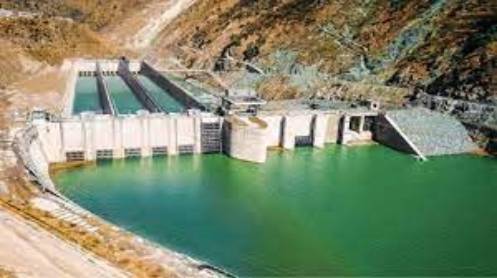ISLAMABAD: The Neelum-Jhelum Hydropower Project (NJHP), with a capacity of 969 megawatts and an estimated cost exceeding Rs510 billion, has faced a setback shortly after resuming full capacity operation following extensive repair works lasting nearly 20 months.
The project had been closed in July 2022 due to significant cracks in its 3.5-kilometer tailrace tunnel (TRT). After 13 months of repair, power generation resumed in August-September 2023 and reached its maximum capacity on March 29, 2024, according to the Water & Power Development Authority (Wapda).
However, within a week of reaching full capacity, on April 3, the 48-kilometer headrace tunnel (HRT) experienced a pressure drop, leading to a reduction in power generation to around 400 megawatts. Sources familiar with the matter indicated that this decline occurred shortly after international contractors completed restoration work, possibly due to debris or further cracks in the HRT.
Efforts were made by project authorities, contractors, and Wapda management to address the issue internally, but the problem was more complex than anticipated. An official mentioned the need to procure a remotely controlled vehicle from abroad, likely from China, to identify and potentially rectify the fault, estimated to cost around Rs6 billion. The incident has not yet been formally reported to the prime minister, and the project’s partial closure is causing significant daily electricity unit losses.
The previous repair of the 3.5-kilometer TRT cost approximately Rs6 billion, with an additional Rs37 billion in energy loss during the repair, maintenance, and testing period over the subsequent 20 months. Wapda has submitted insurance claims totaling about Rs43 billion for these losses and has convened high-level meetings to address the situation.
When contacted, Wapda confirmed a notable decrease in power generation due to the HRT pressure drop on April 3 but did not specify the exact cause. They stated that generation had been restricted to 530 megawatts as a precautionary measure to monitor pressure fluctuations and would be increased gradually after analysis and consultations with project consultants.
The Neelum-Jhelum project, commissioned in 2018, has contributed significantly to the national grid, generating 19.829 billion units of electricity to date. However, this recent setback underscores ongoing challenges in maintaining and operating major hydropower projects.
Story by Khaleeq Kiani







